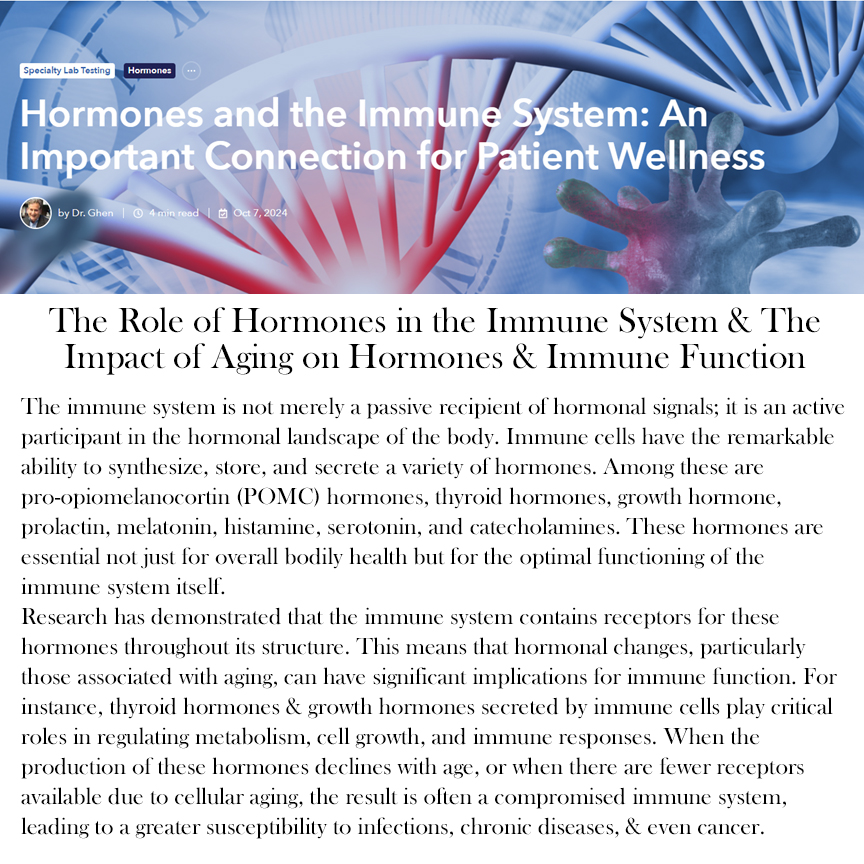
When patients present with symptoms like waning energy or changes in libido, physicians often consider hormones, as these are often seen as the most direct indicators of hormonal imbalances. However, the role of hormones in the human body extends far beyond these symptoms, influencing a wide array of physiological systems, including the immune system. This intricate relationship between hormones and immunity is a critical component of comprehensive wellness, one that deserves greater attention in clinical practice.
The Role of Hormones in the Immune System
The immune system is not merely a passive recipient of hormonal signals; it is an active participant in the hormonal landscape of the body. Immune cells have the remarkable ability to synthesize, store, and secrete a variety of hormones. Among these are pro-opiomelanocortin (POMC) hormones, thyroid hormones, growth hormone, prolactin, melatonin, histamine, serotonin, and catecholamines. These hormones are essential not just for overall bodily health but for the optimal functioning of the immune system itself.
Research has demonstrated that the immune system contains receptors for these hormones throughout its structure. This means that hormonal changes, particularly those associated with aging, can have significant implications for immune function. For instance, thyroid hormones and growth hormones secreted by immune cells play critical roles in regulating metabolism, cell growth, and immune responses. When the production of these hormones declines with age, or when there are fewer receptors available due to cellular aging, the result is often a compromised immune system, leading to a greater susceptibility to infections, chronic diseases, and even cancer.
The Impact of Aging on Hormones and Immune Function
Aging is accompanied by a decline in the production of several key hormones, including melatonin, growth hormone, adrenal hormones, and the biologically active form of vitamin D. This decline is a natural part of the aging process but has significant effects on the immune system—a phenomenon known as immunosenescence. Immunosenescence is characterized by a decrease in immune function, which is why older adults are more prone to diseases like cancer, cardiovascular disease, and a range of immune dysfunctions.
Scientific studies have shown that the reduction in hormone levels, such as those of cortisol, can contribute to the development of chronic diseases. Cortisol, while essential for regulating inflammation and stress responses, can become detrimental when its levels are either too high or too low, as seen in chronic stress or adrenal insufficiency, respectively. This imbalance can lead to persistent low-grade inflammation, a hallmark of many chronic diseases.
Moreover, the decline in sex hormones like estrogen and testosterone is linked to an increased risk of autoimmune diseases, particularly in postmenopausal women. Estrogen has been found to have immunomodulatory effects, which help maintain a balanced immune response. As estrogen levels drop, the risk of autoimmune conditions such as rheumatoid arthritis and lupus increases. Therefore, maintaining hormonal balance is not just about mitigating the visible signs of aging but also about preserving immune function and preventing disease.
